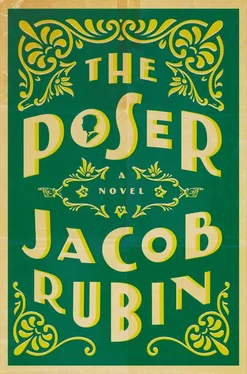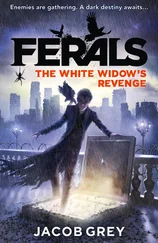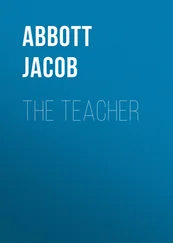Among these sun people, Max stuck out, to say the least, wearing a straw hat, knee-length bathing suit, and flip-flops over dress socks. Several times and with no clear destination, he circled the pool, stopping briefly to squat on the end of a deck chair and then rising again to pace along the deep end. At some point in these circumnavigations, he kicked over two martini glasses, then righted them anxiously before speeding back to the pool house, from which he did not emerge for several hours. The whole thing was so strange I later imitated his look (as if the sun were a grandmother pinching his cheek) for Frankie and Lou by the car. With time, it even became a private joke. “Do the body again,” they’d say. That’s what we called him: “the body,” shouting, sweating, bumping into things.
“Just fine,” I managed to say.
The director appeared. “You know, as long as it seems natural and right,” he was probably saying, given the way he casually waved his hand and then docked it in his trousers’ pocket. After one final piece of advice, or a warning, he saluted me and stepped off into the surrounding dark. There was a grating sound, like a giant fishhook scraping the floor. Then quiet.
“Giovanni, door!”
I was meant to go back out through the door in order to reenter. I walked out of the door as well as I could. I could not feel my hands or feet.
“Action!” the director shouted.
I walked through the door into the fake office.
“Harry Knott,” the actor said to me in a put-on voice. “That right?” He rested his fists on the desk, apelike. The fake window behind him looked out on absolute darkness. Once you stood in the set, a life-size diorama of a police commissioner’s office, you could see only the set. It was like being trapped inside a window display.
“That right?” he said again.
I was supposed to say, “That’s me.”
“Cut! Everything okay? Try it again,” the director might have said. It had the rhythm of something like that.
I walked out again, no blood in my hands.
“Action! Giovanni? Giovanni—”
• • •
Later I looked down at the set, maybe twenty feet below, where the director kicked imaginary stones. “Okay, you’ll be okay,” a voice above me said. Max, I saw. It seemed I was lying limply in his arms, being transported up a set of cast-iron stairs. Bernard was ahead of us.
I was brought up several flights to a door. Bernard opened it, and Max followed. Inside was a high-ceilinged office, the size of a warehouse. A desk occupied the center of the room where Nathan, of all people, held a preposterous leg of lamb to his mouth, like a piccolo. On both sides of the desk, many men, perhaps twenty in all, stood in the same wool suit, fixing their eyes on me with the incomprehension of animals.
Max laid me on the low couch opposite them.
“Victim Two in Perfume of Shangri-La ?” a man with horn-rimmed glasses asked.
“No, no, he’s the, uh, bookkeeper in Diamonds One ,” answered a stooped man with flaking skin.
“The kid’s sick!” a third said.
In no time, the word sick carried across the room.
There was a pop. A musket. The neigh of a horse. A light cast the men in bloodred. Out of instinct I searched for Bernard, who had established himself behind Nathan’s desk. He’d crossed his arms and kicked up his foot, resting it against the window in the posture of a fierce, appraising woman at a cocktail party.
“What’s going on here, Bernie?” Nathan asked, not taking his eyes off me.
The door opened and in shuffled Frankie and Lou.
“He fainted.” Bernard took his time. “Not an actor, it seems.”
“A movie star who doesn’t act is the kind of riddle a man in my position can’t much afford to contemplate,” Nathan said. He wiped his mouth with a napkin imprecisely before embarking upon another bite of the lamb.
Again a lurid red blanketed the studio boss and the men, and Bernard, too. I understood. The wall behind me was no wall at all, but the back of a movie screen. We were somehow behind it. A voice shrieked, “Mince ’em — to the bone!”
“The boy belongs on a stage,” Max said, pacing along the far wall. “As the man who discovered him, I think I’m entitled to some views on the subject.”
“Do us a favor, Max,” Bernard said. “If you find your mouth is beginning to open, close it, please.”
“Break ’em!” the screen shouted. “To bones!”
Suddenly, my mind was full of Lucy’s apartment, its warmth in the winter, when the radiator clanged by the soft land of her bed. The couch of Sea View, too, where Mama might have been sitting that very instant, and how greatly I wished to sit on her lap, in the light of the lamp.
“A movie star’s the dictionary definition of a man,” Nathan said. “This looks like a dog to me. I took a risk on this kid.”
“Mince ’em!”
“He doesn’t have to act,” Bernard said and, with the usual ecstasy of self-control, sauntered over to the side table. There he poured a glass of water and slowly fished something out of his pocket. The men watched Bernard as he decanted the carafe and set it on the bar. He approached me with an extended hand. In his palm lay a green pill.
For the record, I did picture pushing his hand away. I pictured fleeing down the stairs, through the set, out past the lot café where the long-necked women in floppy hats were having their ginger ales; I pictured running past the gate of the studio, past the boulevard to the howl of the interstate, where I would hail a car that would carry me east, back to the City, perhaps, to the Communiqué, where I would step onstage, where I would pick out the first available volunteer, whoever it was, or even venture farther north, to Sea View, and knock on Mama’s door, but in what suit would I knock? I wondered as I swallowed the pill and was led, by Bernard, to a nearby closet, where I changed back into my outfit, that is, one identical to his, at which point the thought of escape seemed so ridiculous I couldn’t believe I’d considered it at all.
Upon my reentering the room, the men’s expressions shifted subtly but decisively, like figures in a famous painting captured, as indelibly, moments after breaking their pose. Some cocked their heads. Others straightened their backs. I lit a cig, bathed in the blue of the screen.
Bernard said, “I present you Harry Knott, international spy.”
“Now why didn’t we think of that earlier?” asked Nathan with a smile, his plate finished.
• • •
Mama and I resumed our correspondence some weeks before the completion of filming. That day I had been running late, heading out of my bungalow at the Chateau Ravine, a hotel set in a small hill veiled by Jurassic vegetation. I jogged briefly to the town car in which Bernard, Frankie, and Lou waited for me. Yet Bernard was never one to jog, and that harried pace seemed to stick to me, like a bad thought, once I’d slipped into the backseat. As we drove along, Frankie told a joke about a black man, and Lou laughed very hard, and I had a strange premonition that these men were ferrying me to some abandoned lot, though I only smiled at the billboards.
That night I wrote to Mama. To my shock, I was able to construct myself on the page.
SEPTEMBER 10
I’m sorry not to have written, Mama. I’m sure you know the story from Max — the movie we’re making and all of it. I had a very bad day the first time but otherwise I’m doing well. It is of the utmost importance that I achieve my own person, and this seems to be the way. I grew tired of the Communiqué, of all those volunteers tugging at my sleeve and having to be the man they expected of me. I know you don’t care for Bernard, but he is the most unrequiring person I’ve ever met. If anyone was born for the silent life, it is your son, who has much rock inside him. The world, if it likes, can beat against the rock and make the sound of itself. Please feel free to write. But I think it’s best if, for now, you don’t visit. Everything I do is for you, Mama.
Читать дальше












